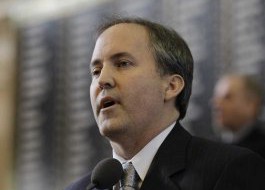
LGBT rights activists in Texas fear that teachers will be forced to out pupils to their parents if proposed legislation becomes law next year.
Konni Burton, a Republican state senator from Fort Worth, filed the bill ahead of the 2017 legislative session. It asserts that parents have the right to all records and information related to their child, from test scores to details of their physical and mental health and “any general knowledge”.
Critics argue that if a child has confided in a teacher but not a parent it is probably because they fear harmful repercussions at home. But the bill warns that educators who fail to comply face disciplinary action, regardless of the child’s wishes.
“This is a violation of personal privacy and the legislation puts LGBT youth in harm’s way,” said DeAnne Cuellar of the advocacy group Equality Texas. “Teachers can’t effectively do their job if they’re worried about being penalised for not outing their students to their parents. Classrooms have always been a refuge and a safe space for students to confide in their mentors, their counsellors and teachers.”
Burton issued a statement on Monday saying the proposed bill aims to streamline and enhance existing state law on parents’ right to know about elements of their child’s life. There is an exception for reports of abuse.
“Currently, a teacher may decide when and how to proactively reach out to a parent about anything of importance to them, which is how it should work. The proposed bill does absolutely nothing to change this present mechanism for a parent’s right to know,” she said.
“The bill does, however, strengthen the existing expectation that when a parent contacts a school and inquires about their child, they will receive accurate information and not be punished by local policies that while well-intended, do more harm than good.”
Burton said she was prompted to file the bill after her district argued earlier this year over local school guidelines that stressed a right to privacy for transgender students. The guidelines were revised to require parental involvement. Then, in August, a federal judge in Fort Worth blocked guidance from the Obama administration on accommodating transgender students in public schools.

LGBT advocates across the country have been alarmed by the possible implications of a Donald Trump presidency. The vice-president-elect, Mike Pence, has attracted criticism for his conservative social stances, which include apparent support in 2000 for the discredited practice of “conversion therapy” and the signing into Indiana law last year of a so-called religious freedom bill that was later modified after concerns that it was discriminatory.
In Republican-dominated Texas, though, campaigners have grown used to battling a slew of proposals from rightwing lawmakers when the legislature convenes every two years. “We were already bracing for a series of anti-LGBTQ policies in the state of Texas before the Trump election just because we are currently working in a hostile environment,” Cuellar said.
The state’s lieutenant governor, Dan Patrick, last week announced that one of his top 10 priorities would be a law to force transgender people to use facilities comporting with their sex assigned at birth, which he termed a “women’s privacy act” to ensure “women and girls … have privacy and safety in their restrooms, showers and locker rooms”.
When the session begins in January, Texas lawmakers will also examine a proposal to ban local anti-discrimination protections not covered in state statutes, similar to part of a measure that was passed amid great controversy in North Carolina last March as a riposte to an ordinance in the city of Charlotte.




